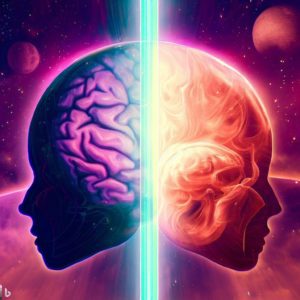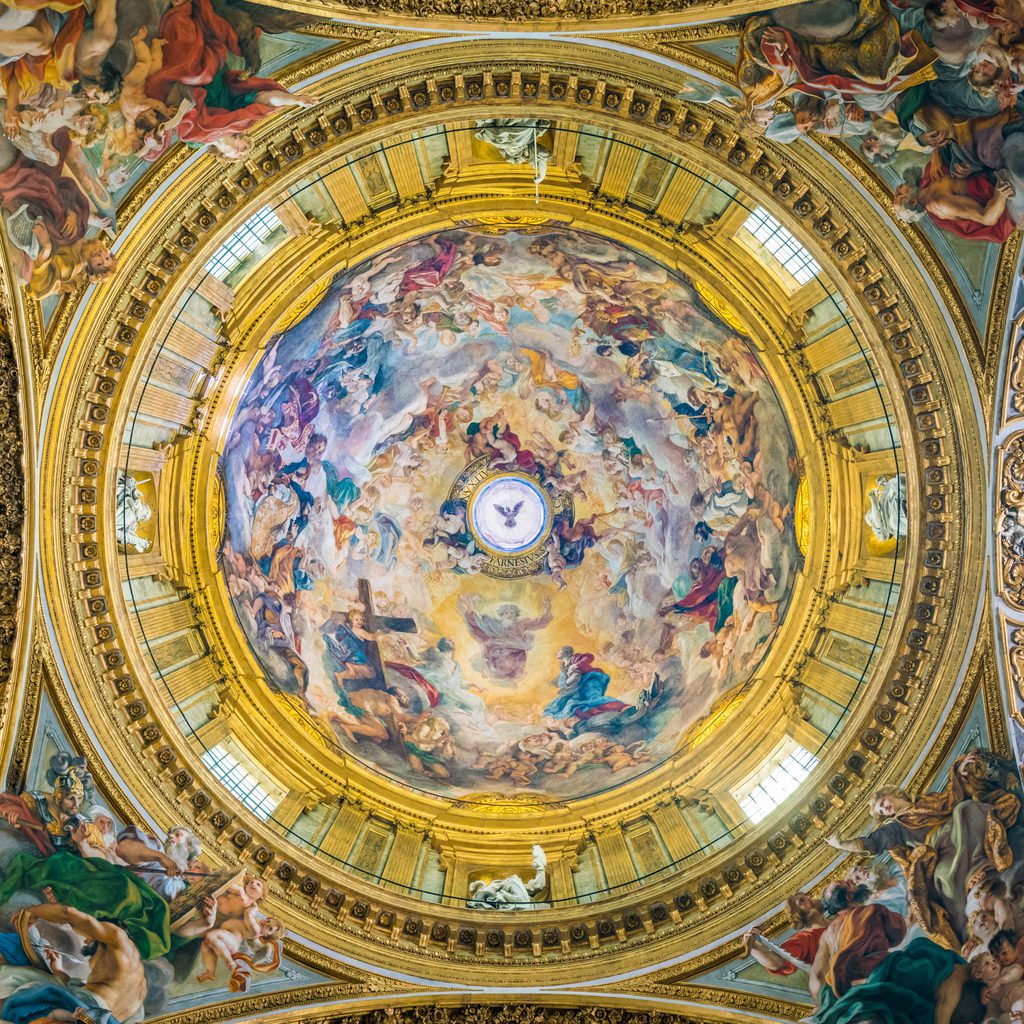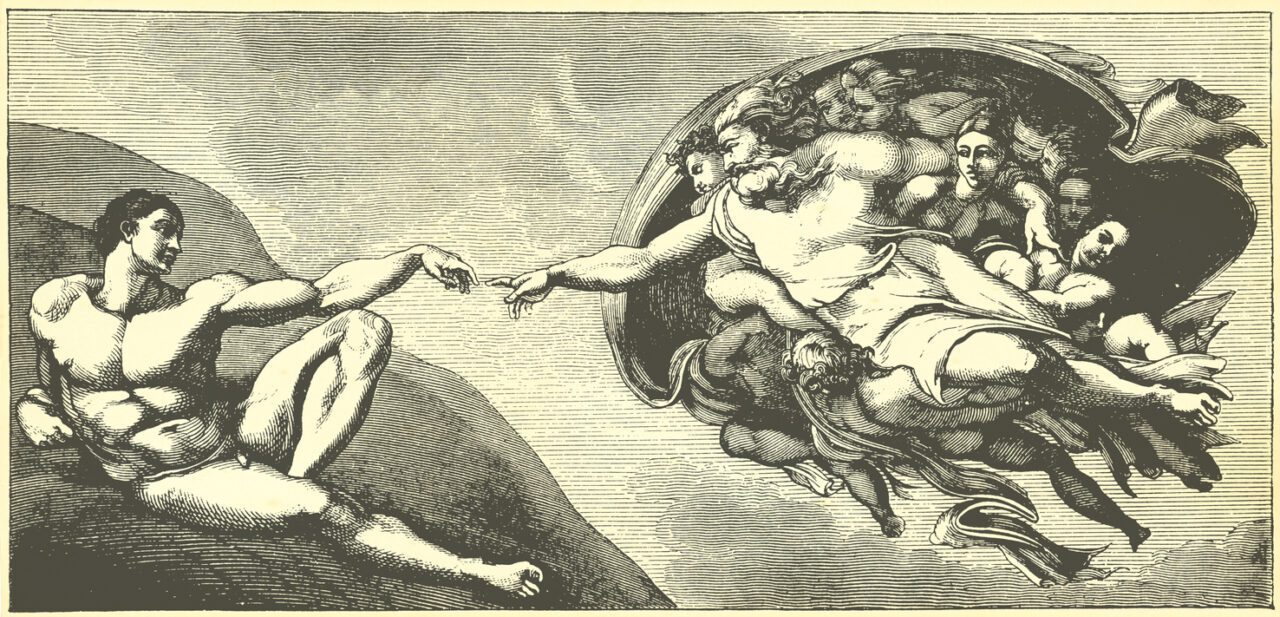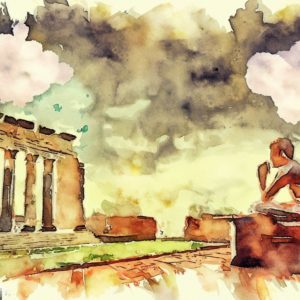0:00:22
Welcome back to the Logos of Experience and Truth podcast, where I continue to unlock the mysteries of the Beatific Vision.
I am still running through my mind the why. The reasons why studying, learning, understanding, and thinking more deeply on each of those aspects to spirituality or religion, and especially in thinking about them in a practical way. And what was crossing my mind was belief. Belief itself and what is the practical use of belief? Is there a practical use of and or for belief? And is there anything deeper going on beyond the common idea of either belief in a deity, belief in God and that that is all belief really is. Or the only other time I am sitting here thinking of when people use the term believe, it is in believing in yourself. Right? You know, believe in yourself to succeed or something on that order. So, belief in God and or believing in one’s own self and or abilities.
In my podcast on the Logos of God episode, I compare knowledge of the self to knowledge of God and that they go hand in hand. Gaining one gains the other. I am thinking in historical terms right now because I am trying to picture the origin of belief and if, how and why it may have and continues to benefit humankind.
0:02:05
The two caves I am most familiar with are the Lascaux and Shanidar caves. And when I am talking caves, I am talking of cave paintings. These go back to like ten, fifteen thousand BC, I think is their time frame. You can look up the imagery for it. Last time I studied some of this stuff, there was no consensus on what exactly is painted on these walls. Of course, if there’s animals, right, there’s animals, but their use, their purpose, their reason for being there. The most common explanation that I have heard about this is some type of shamanism. Painting these animals or the hunt or the rituals, that maybe they were doing in the hopes of a good hunt, something on that order, something that is translatable to tribal peoples that still exist today and our knowledge of these peoples across the centuries versus going across ten thousand years going to the time frame of these caves. The basic idea of that these were painted as some form of shamanistic practice, some sort of shamanistic idea. But if we look at the basic concept of them . . . let us just assume that that is what they were doing. That somehow painting this on the walls beyond just some type of memory, that it’s some type of a shamanistic idea or practice that by painting this on the wall and either focusing on it or praying on it in some manner or doing some kind of ritual with the image of it in the cave will somehow produce the effect in reality of these animals showing up in some way or the spear hitting them or the arrow hitting them in some way that will cause them to have a good hunt.
0:03:59
All of that is belief. That is entirely belief.
Let us go a little bit further into this. Let us just say and I know this is hard for a believer, easy for a non-believer, but let us just say there is no God.
0:04:12
There is no God. Is belief useful? Would belief still be useful? Obviously, the non-believer thinks that the believer is either a quack, lost their mind, does not understand reality, you know, those are the different types of things. But if there is no God does belief serve any purpose, because as a believer and especially one that has pierced through, again, to be able to question is there some type of a practicality to belief? What does belief actually do if I look at it beyond just belief in God and what does it actually do.
0:04:47
Now, Saint Paul’s quote, of course, on belief . . . belief in the certainty of things unseen in the invisible, in the unknown, and that it is more than just a thought, it is a certainty that these things are real. Well, let us translate that. Everybody does it. Or hopefully, everybody does it or you are told to do it, or you are taught to do it.
0:05:10
Now, I am not going to say that a believer has a better chance of understanding this or not versus a non-believer, but if we use a modern idea or term what is belief? Well, it is goal setting. When you sit down, and you are creating goals, or you are setting up a to-do list or a New Year’s resolution or looking down into your future of what you hope to accomplish or what you hope to achieve, that is belief. It does not exist yet. It is not there. It is not present. But in your mind, you are holding the image, the idea, the feeling the hope of x y z occurring in some manner and that’s essentially belief even if it is just called the goal setting. And I think that that’s actually one of the main things that I’ve noticed in modernity in our most recent modernity at least that a lot of the terms that are used are . . . or at least appear to me to be an attempt of moving away from the old words of like God or belief and things of that nature and giving them these non-emotionally triggering terms that still mean the same thing, but aren’t triggering the memory of these deeper words and ideas and concepts that have existed throughout humanity for quite some time.
0:06:45
If we go a little bit further ahead from cave paintings, ten, fifteen thousand years, and instead go to like Egypt or Mesopotamia, I mentioned I am teaching my daughters history, ancient history in particular, so I am constantly going back to ancient Egypt and Mesopotamia when it comes to teaching my daughters this. So, if we consider the fact that obviously, there was religion, heavy religion, deep religion, tons of religion. But is that a factor in the creation of civilization? If we think of, for instance, I cannot remember the name of the architect of the great pyramid. I am drawing a blank right now, but I believe he had created the stepped pyramid by stacking up one layer on top of the other. I cannot remember the . . . Mastabla . . . I think something like that is . . . is floating in my head. But the architect then took that a step further and made the first pyramid and . . . and all that kind of stuff.
0:07:49
So, picturing that in the mind . . . think about it. We are talking five thousand years ago. We are not talking like an architect today using software to do this. I mean, they are still picturing it in their head, but the software is what is making that a much easier translation from thought to hand movements on the pen, on the tablet, on the writing surface to translate that onto the screen, and to actually build some type of a schematic onto that. I mean, we are talking five thousand years ago. They had to envision the entirety of the pyramid, of each of these structures that occurred back then.
0:08:30
And what I am trying to say is I am not sure if that was possible without belief having been implanted or cultivated in people’s minds through religion, through belief in an invisible power or deity, and that is how it has been translated from this religious aspect into practical aspects. Because having to sit there and envision and picture something . . . and I am even using those modern terms. I am not saying believing that a pyramid can be built. I am already conditioned to describe it as envisioning, as goal setting, as picturing in your mind, as setting a plan for this, but the endpoint is still the thing that is being believed in that each of these steps that I want to take will bring me towards. And that is the benefit or that is some type of a practical idea or concept of what belief actually is. As long as you can pull yourself away from the emotionality of belief of, well, I am used to thinking of and knowing belief as belief in God or believing in myself. And I guess you could still use believing in myself as the practical thing that I can achieve x y z, but you still have to be able to picture x y z of what it is you are trying to move towards and achieve and belief plays a huge factor in that. How do you believe? How do we believe in something? Thinking about something is one thing, believing in it is an entire other thing.
0:10:24
And I speak about this in, I believe, the second season of podcast episodes. I haven’t released them yet, but somewhere in there I’m talking about the difference between conscious thoughts, subconscious thought, and this is essentially your normal thinking and your belief system and how all of that, especially the belief system, can be tied to the paradigm of thought and the worldview that you see and that you experience reality around you. The whole goal of the mysteries, the entire purpose of the mysteries, especially if I am talking in the ancient manner, especially if I am talking in the current manner through the sacraments in the church especially, these are the methods by which you change your reality. Yourself . . . made and your socially governed mind . . . what has been given to you by the world or as the eastern traditions call it: the maya, the illusion that exists in the mind. But you have to be able to believe that you can change that if that is your ultimate goal. If your goal is to change that aspect or some aspect of how you see and perceive the world because the world is what is given into your mind, and the kingdom of heaven is how you change and alter that. The mysteries . . . that is what the mysteries are . . . penetrating through the conscious mind. We were talking about the method that the mysteries provided, some kind of method to enter into your mind, penetrate through it, go deep into your subconscious mind, battle against all those subconscious thoughts and beliefs and to change and alter them.
0:12:36
I use also many different analogies in my work, The Vision Explained Deeper that you can find on the Logos of Experience and Truth.com website of the reality that many, many, many animals, creatures, insects, they all have some type of shedding process. The clearest one, of course, is going to be the snake. And I always pondered why does Jesus say the snake is wise? Or why do many cultures say the snake is wise? It was not just Jesus that said it, many of them did. That’s why it’s interesting that after this, that there’s suddenly all this negativity around the snake due to Satan and Lucifer and the Devil and that kind of stuff, when prior to the demonization of the demons and that whole aspect of the supernatural side of Christianity, especially . . . prior to that, pretty much every culture revered the snake in its ability to shed its skin to rejuvenate itself.
0:13:39
But where is our skin shedding? What is it that we need to shed to renew, regenerate, rebirth ourselves. Science has shown us that at a cellular level, and it’s kind of weird the number of days . . . in forty days or thirty-six to forty days the entirety of our cells have been regenerated, or the layer of . . . I cannot remember the specifics of it, but it is something tied to the biblical number of forty days, which was very interesting when I saw that. You could look that up. I cannot remember the exact thing, but there is something with the number of days that it takes for the cells to regenerate. Even though that does occur with our bodies, and even though we are essentially regenerated physically, pretty much moment by moment since our cells are never static, they are constantly in flux.
0:14:33
But the mind. How does one change the mind? Something that you think, something that was ingrained in your head as a kid, how do you change that? I have already used the term in other episodes of mental alchemy. That is what the true alchemy is. How do you convert some mental quality of lead, a bad thing, a horrible thing in your mind, memory, feelings. How do you convert that into spiritual gold? That is mental transmutation. That is the true alchemy. And that is what belief brings. That is what the mysteries provide: the path, the steps, to be able to accomplish this.
0:15:30
So, there is definitely a practical use for belief as long as you can disentangle yourself from just the sole idea of believing in God or believing in yourself. What does belief actually do? Well, if you’ve already trained yourself to believe in an invisible God, and again, we are still saying that God does not exist. Let us just say, God does not exist. If you believe in this invisible thing that does not exist, well, then you are most qualified and you have already trained your mind to be able to believe in something that is not there and to create steps to move towards it.
0:16:13
Most of these types of things were developed through the mysteries throughout all of history. And again, as I said in a different one, this is why they were the possession of the elite in the past and another of the reasons why it is beneficial to learn them is because they were the possessions of the elite. But now they are available to all especially since the Internet in modern times. So having access to these is an intense blessing.
So, I will leave this at that: practical reasons for belief itself of what belief itself is and the practice of believing is gained by believing in God. And we will get back to this and I have mentioned in another podcast as well that this is tied to why the prophets constantly said, believe in God first and then all else comes to you; most clearly seen in Solomon, that he asked for wisdom, but then Wisdom tells him he will receive all else because of it.
So, I will leave you at that. Until next time.





